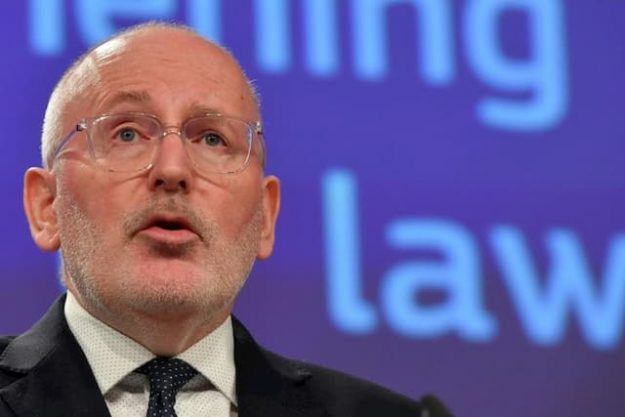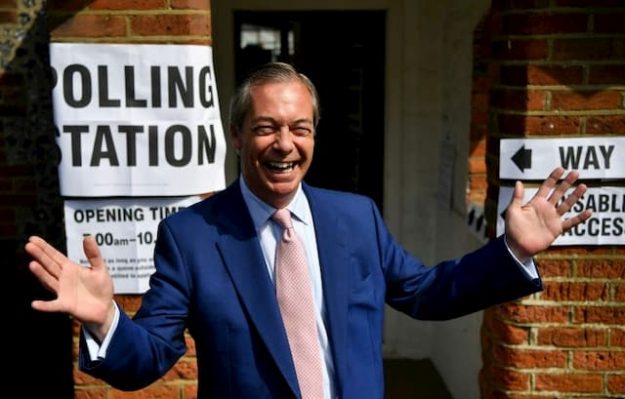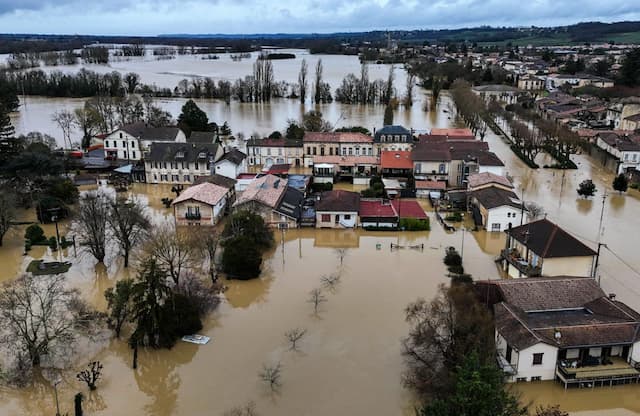European Elections 2019: Surprise Victory of Pro-Europeans in the Netherlands

Pro-European candidates, especially Labour, emerged victorious from the first European Elections result on Thursday 23rd May, 2019, in the Netherlands, beating the polls.
The Dutch pro-European parties and especially the Labor Party thwarted Thursday 23 May 2019 polls and analysts who announced a victory of the populists in the European elections and emerged victorious, according to preliminary estimates, under the leadership of Frans Timmermans, candidate for the Presidency of the European Commission.
The Netherlands and Britain opened the ball on Thursday , but nothing should filter the United Kingdom before the other member states have finished voting Sunday night.
The Dutch Labor Party (PvdA) of Frans Timmermans, who is bidding for the succession of Jean-Claude Juncker as head of the European Commission, has been estimated to be ahead of the liberals (VVD) and populists (FvD), who were supposed to win the vote .
With 18.1% of the vote, the PvdA is expected to win five of the 26 seats allocated to the Netherlands, the pro-EU Prime Minister Mark Rutte’s Party for Freedom and Democracy (VVD), four seats with 15% of the vote. , and the Forum of Democracy (FvD) of the eurosceptic populist Thierry Baudet three seats with 11% of the vote, according to Ipsos estimates for public television NOS.

“Another Europe”
“I realise that everywhere in Europe there is a need for another Europe, a Europe that is fighting a lot more against climate change,” commented Frans Timmermans.
“A Europe that sees that we have to work together more socially, that big companies have to pay more taxes. These are themes for which social democracy works.”
The official results will be published Sunday night, after the polls close across the continent for which more than 400 million voters will vote in 28 countries to elect 751 MEPs in these elections held until Sunday. It will be Friday’s turn for Ireland and the Czech Republic, with most other EU countries coming out on Sunday.
A flight of the nationalist and populist movements was expected during the polls, which according to the polls would lose ground to the two largest groups in the European Parliament, the European People’s Party (EPP), a group of the pro-European right, and the Party of European Socialists (PES).
According to the latest polls, the party of Marine Le Pen (extreme right) ahead of that of the president Emmanuel Macron in France while in Italy, the League of Matteo Salvini races in the lead with an anti-EU speech.

Brexit ubiquitous
In the United Kingdom, the British voted in a climate plagued by Brexit, which monopolizes the political debates since the referendum of June 2016.
Having failed to leave the EU on time, the United Kingdom was forced to organize this election all the more surreal as the British deputies could sit only a few weeks in the European Parliament.
The country was due to leave the EU on March 29 but failed to gain the support of the deputies, who rejected the exit agreement it signed in November with Brussels three times, Prime Minister Theresa May had to push back the date of the divorce, now set at 31 October at the latest.
To avoid an exit without agreement, she tries to convince MPs to support a bill that she presents as the “last chance” to implement Brexit. But it has had to postpone an indefinite vote on the project, which was attacked from all sides and which caused Wednesday the resounding resignation of the minister in charge of relations with the Parliament, the Eurosceptic Andrea Leadsom.
In this unusual campaign, the Party of Brexit, eurosceptic Nigel Farage, calls for an immediate exit from the EU and without agreement. This new party, created in February, is leading polls. “We have already voted Brexit, they ignored us, so we will tell them again,” said Nigel Farage Thursday to AFP. He hopes to be “the shortest-serving MEP in history”, counting on a quick Brexit.

Enjoyed this? Get the week’s top France stories
One email every Sunday. Unsubscribe anytime.


